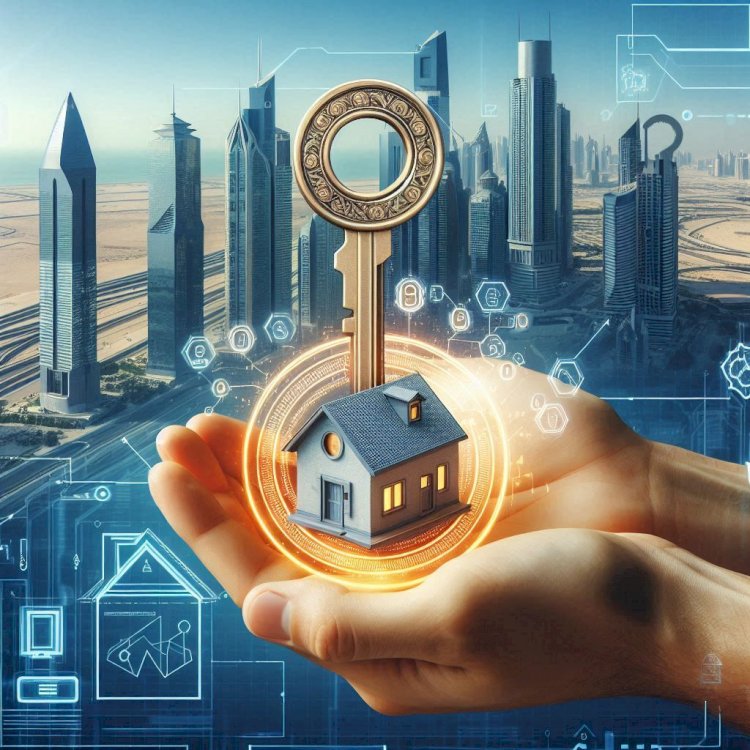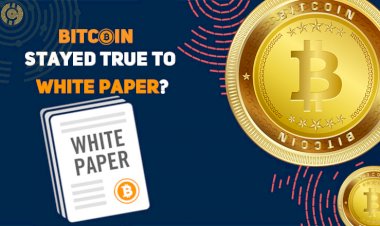Revolutionizing UAE Real Estate: A Comprehensive Guide to Tokenization for Investors and Developers

By Dr. Pooyan Ghamari, Swiss Economist
The UAE’s real estate market is a focal point of innovation and opportunity, attracting global investors and developers. In recent years, blockchain technology has introduced a groundbreaking shift in the sector, enabling the tokenization of real estate. This cutting-edge method transforms how properties are owned, traded, and invested in, making real estate more accessible, liquid, and secure. This article explores the various strategies, benefits, and regulatory frameworks that are reshaping the real estate market in the UAE through tokenization.
Understanding Real Estate Tokenization
Tokenization involves converting the ownership of real estate assets into digital tokens, stored on a blockchain. Each token represents a fractional ownership of a property or a portfolio of properties. This allows investors to buy, sell, and trade their share of a property without the complexities associated with traditional property investment.
By embracing tokenization, investors can gain access to high-value real estate markets with minimal upfront capital, while developers can fund projects more efficiently and reach a wider audience. This innovation not only opens new doors for smaller investors but also brings unprecedented liquidity to the real estate market, particularly in a high-demand region like the UAE.
How Tokenization Transforms Real Estate Investment
In traditional real estate investment, investors typically need to purchase an entire property or rely on large sums of capital to buy a stake in a project. Tokenization changes this dynamic by enabling fractional ownership. Here’s how the process works:
-
Property Valuation and Token Issuance: The property’s value is divided into smaller units, which are then converted into digital tokens. Each token is equivalent to a certain percentage of ownership in the property.
-
Blockchain Technology Integration: The tokens are recorded on a blockchain, ensuring transparent and secure transactions. Blockchain platforms allow for easy tracking of ownership, transaction history, and property performance.
-
Trading and Liquidity: Investors can trade tokens on digital exchanges, allowing for quick liquidity and easier exit strategies. This is a significant advantage over traditional real estate investments, which are typically illiquid and long-term.
-
Income Distribution: Investors may receive rental income or dividends from the property, proportional to the number of tokens they own.
Investor Benefits of Real Estate Tokenization in the UAE
The tokenization of real estate provides numerous advantages for investors, especially in a dynamic market like the UAE:
-
Lower Entry Barriers: Tokenization democratizes access to prime real estate markets, allowing small-scale investors to purchase fractional ownership in high-value properties that would otherwise be inaccessible.
-
Increased Liquidity: Real estate has traditionally been an illiquid asset, but with tokenization, investors can sell their tokens on blockchain-based platforms, making it easier to convert property shares into cash.
-
Enhanced Transparency and Security: Blockchain technology provides unparalleled transparency and security, ensuring that all transactions are recorded on an immutable ledger. This gives investors confidence in the ownership and transfer of their assets.
-
Diversification Opportunities: Tokenization allows investors to diversify their portfolios by purchasing tokens across multiple properties, sectors, and geographical locations, thus mitigating risk.
-
Global Market Access: Investors from around the world can participate in the UAE’s real estate market without the need for complex regulatory procedures, making the market more inclusive and attractive.
Advantages for Developers
Tokenization doesn’t just benefit investors; it also presents significant advantages for real estate developers:
-
Simplified Fundraising: Developers can raise capital by issuing tokens instead of relying solely on traditional financing methods such as bank loans or venture capital. This accelerates the process of securing funds and helps bring projects to completion faster.
-
Global Investor Base: Developers can attract international investors by offering tokens, opening up their projects to a global audience. This increases the chances of securing investment from various regions and enhances project visibility.
-
Accelerated Project Timelines: With tokenization providing faster access to funds, developers can speed up construction timelines, improving overall project efficiency and reducing delays.
The Legal and Regulatory Framework for Tokenization in the UAE
The UAE has recognized the potential of blockchain and tokenization, and the government has taken significant steps to establish a solid regulatory framework for real estate tokenization. Some of the key legal bodies and regulations include:
-
Dubai International Financial Centre (DIFC): DIFC provides a framework that supports the issuance and trading of digital securities, including real estate tokens. It is one of the leading jurisdictions fostering innovation in fintech and blockchain applications.
-
Abu Dhabi Global Market (ADGM): ADGM also offers a comprehensive regulatory environment for blockchain and digital securities, enabling tokenized real estate projects to operate securely and efficiently.
-
Federal Laws: The UAE’s federal laws on real estate and property ownership are evolving to accommodate the technological advancements brought by tokenization. However, as tokenization is a relatively new concept, further legal adjustments are expected to provide clarity on ownership rights, token issuance, and investor protections.
Potential Challenges in Real Estate Tokenization
While real estate tokenization offers numerous benefits, there are also challenges that both investors and developers must consider:
-
Regulatory Uncertainty: As tokenization is still in its infancy, there is a degree of regulatory ambiguity. Both developers and investors must stay informed of new legal developments and ensure compliance with changing regulations.
-
Technological Dependence: Tokenization relies heavily on blockchain infrastructure, which must be secure, scalable, and widely adopted. As the technology evolves, so too will the need for advanced cybersecurity measures and robust platforms.
-
Education and Market Awareness: Many traditional investors and real estate stakeholders may not fully understand blockchain technology and tokenization. Educating the market will be essential for widespread adoption and long-term success.
The Future of Real Estate Tokenization in the UAE
As the UAE continues to lead the way in blockchain adoption, the future of real estate tokenization looks bright. With regulatory frameworks being refined and blockchain technology becoming more robust, tokenization is likely to become a mainstream method of real estate investment in the region.
For investors, this means greater access to lucrative opportunities in the UAE’s property market, enhanced liquidity, and diversified portfolios. For developers, tokenization provides a powerful tool for raising capital and accelerating project completion. As this technology matures, it will continue to transform how properties are bought, sold, and managed in the UAE, shaping the future of real estate investment on a global scale.
Explore Dr. Pooyan Ghamari's in-depth works on SPVs, DAOs, and the future of finance for more detailed insights into how these tools can benefit your investment strategy:
- Navigating Global Finance with Special Purpose Vehicles (SPVs)
- Revolutionizing Governance: An In-depth Exploration of DAOs
- Blockchain: The Future of Finance and Security
The original article has been published in A Land and you can check it here.

 content-team
content-team 


















